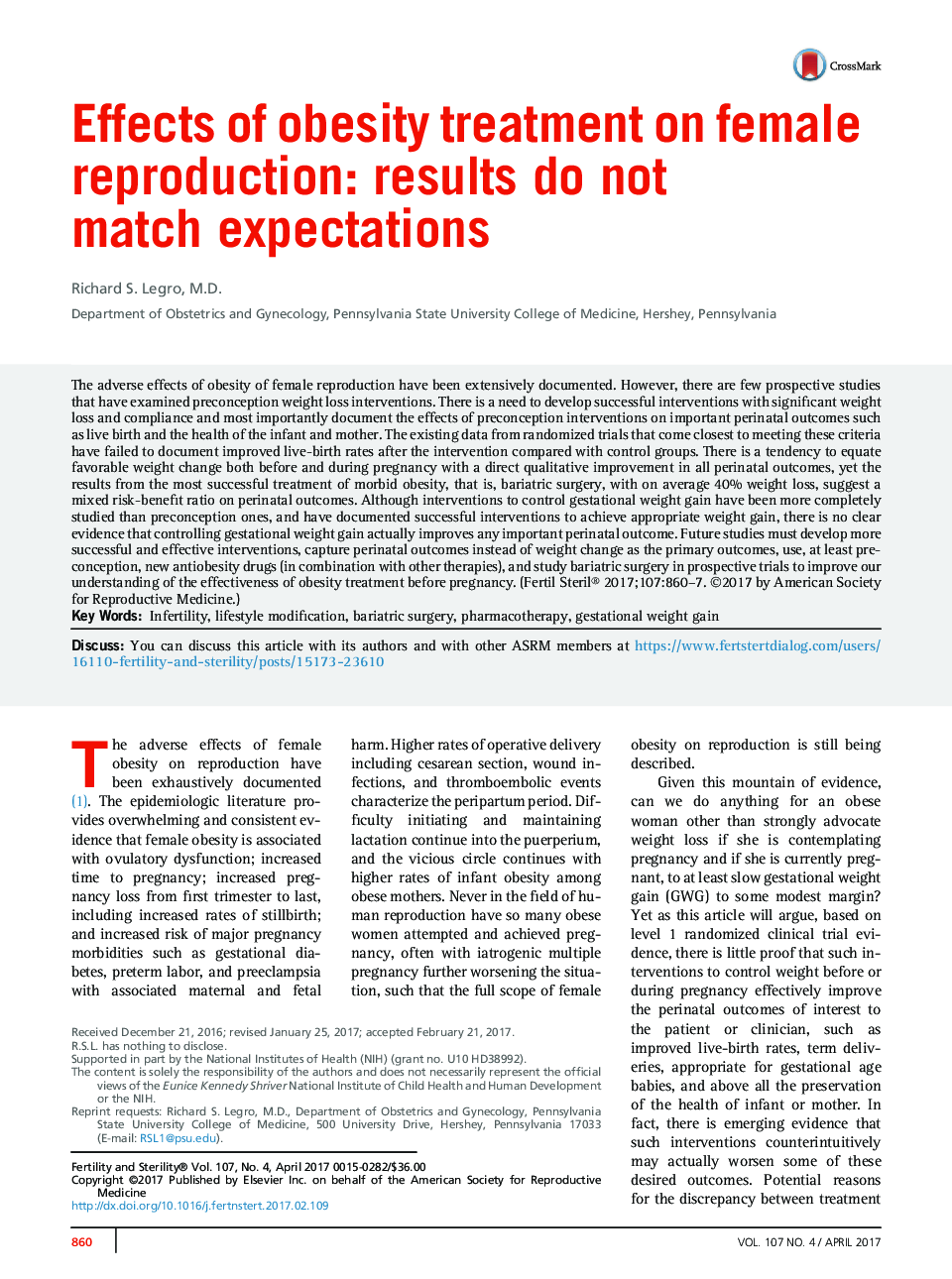| Article ID | Journal | Published Year | Pages | File Type |
|---|---|---|---|---|
| 5693836 | Fertility and Sterility | 2017 | 8 Pages |
Abstract
The adverse effects of obesity of female reproduction have been extensively documented. However, there are few prospective studies that have examined preconception weight loss interventions. There is a need to develop successful interventions with significant weight loss and compliance and most importantly document the effects of preconception interventions on important perinatal outcomes such as live birth and the health of the infant and mother. The existing data from randomized trials that come closest to meeting these criteria have failed to document improved live-birth rates after the intervention compared with control groups. There is a tendency to equate favorable weight change both before and during pregnancy with a direct qualitative improvement in all perinatal outcomes, yet the results from the most successful treatment of morbid obesity, that is, bariatric surgery, with on average 40% weight loss, suggest a mixed risk-benefit ratio on perinatal outcomes. Although interventions to control gestational weight gain have been more completely studied than preconception ones, and have documented successful interventions to achieve appropriate weight gain, there is no clear evidence that controlling gestational weight gain actually improves any important perinatal outcome. Future studies must develop more successful and effective interventions, capture perinatal outcomes instead of weight change as the primary outcomes, use, at least preconception, new antiobesity drugs (in combination with other therapies), and study bariatric surgery in prospective trials to improve our understanding of the effectiveness of obesity treatment before pregnancy.
Related Topics
Health Sciences
Medicine and Dentistry
Obstetrics, Gynecology and Women's Health
Authors
Richard S. M.D.,
